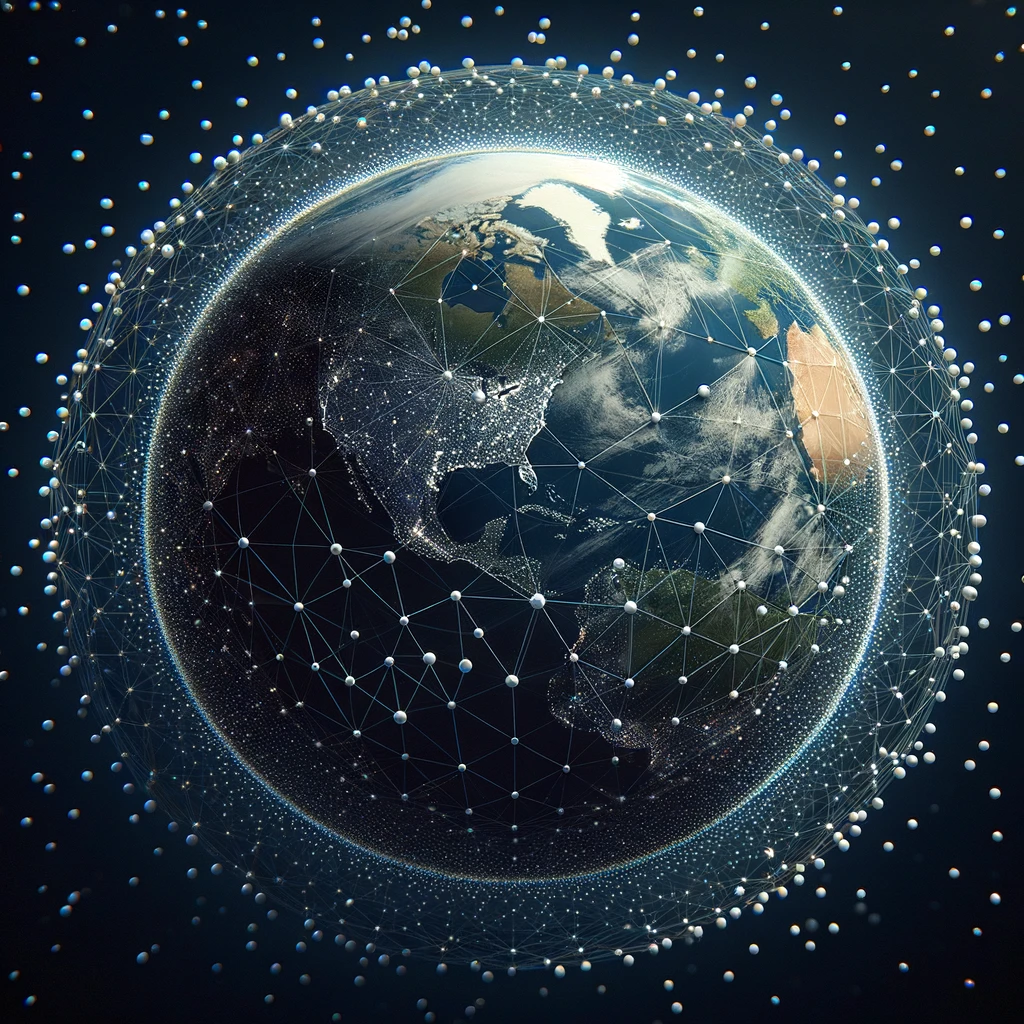A couple of weeks ago Elon Musk tweeted (or Xed, or whatever it’s called today) that Starlink has broken even and congratulated its team. The company has been offering fast satellite internet access through its own Low Earth Orbit (LEO) constellation of more than 5000 satellites. As part of SpaceX, it’s the first company of its kind that designs, builds and launches its own satellites with no third party dependencies.
I haven’t used Starlink, but I’ve read many good things about it. The costs are reasonable, and the connections fast, especially for rural communities that have little chance of seeing the level of investment by local or central governments (telcos don’t give a damn) necessary to get fast fibre trunks etc. Its service has been used by Ukraine to help coordinate their defence forces, remote communities, adventure seekers, commercial maritime companies, now offering exceptional internet service on their ships, digital nomads working from around the world and requiring good connectivity at all times.
Starlink’s lead is being followed by others. Europe has announced it’s concerned about the concentration of power by one US-based commercial entity out of their reach, and is planning to build its own constellation. As usual, it will probably be many years too late (and vastly over budget), with little to show for it. China, which doesn’t allow Starlink to offer its service to its citizens, as it bypasses its Great Firewall, is banning its use in its territory, and also planning to launch its own constellation. And so does Amazon, with its Kuiper project, among others.
Now, all that is great! Competition in satellite-based internet provision is fantastic news. Yet, the corollary of this, is that the world is sitting idle by, while Low Earth Orbit is becoming congested by competing interests, governments and organisations. The same thing happened to the telecommunications networks in countless countries decades earlier, when they became privatised and service provision became almost soviet-like (or, rather, gang-like), with major competitors carving up the ‘real estate’ and offering their services in their ‘turf’, under the auspices of weak regulators that effectively turned a blind eye.

Similar to the national telecommunication grids and the Low Earth Orbit space, trains, electricity, natural gas, water and many other utilities, if unchecked, will give rise to natural monopolies. Rectifying the mistake of senseless privatisation took years and billions of euros/dollars, and is still ongoing. Similarly, if unchecked, the Low Earth Orbit could end up being a highly congested, extremely dangerous and quasi-inoperable space. Starlink’s 5000 satellites will quickly turn into a dozen constellations with, perhaps, close to 50000 or even 100000 satellites in total. This will make it almost impossible to manage the available space, let alone handle the logistics of launching, replacing and de-orbiting satellites (Starlink satellites have an expected lifespan of about five years), the EM pollution and its effects, the night sky pollution, etc.
In spite of our prior lessons from the mistakes of decades past, the costs to the consumer, upstart businesses, the rate of innovation and, of course, to governments, the world does not seem to be ready to collectively deal with the risks of natural monopolies. That LEO is now, an international problem makes it all the more difficult to regulate. I don’t believe there is an easy solution to this problem, but I do hope the world finds a way to communicate, coordinate and regulate LEO, in a way that will allow for all interested parties to partake without rendering it unusable for all of us.
